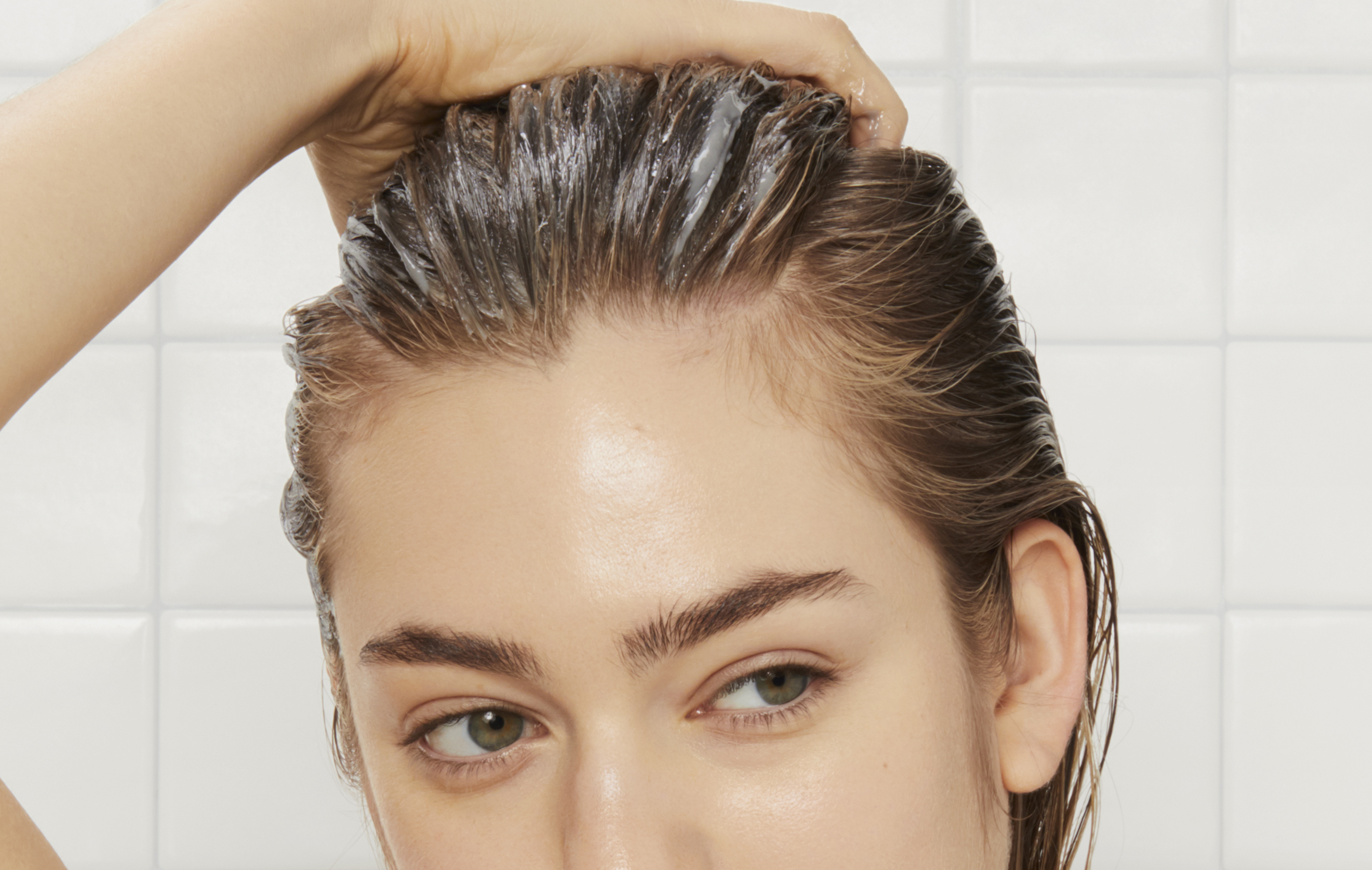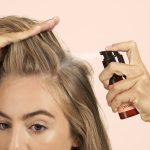Cause #1: Over-washing hair
One primary reason the microbiome on your scalp becomes imbalanced is that you’ve stripped away your scalp’s natural defenses, inhibiting the growth of certain microorganisms and enabling others to flourish. This stripping is typically the result of either washing too often or using a shampoo formula that contains traditional sulfates, a cleansing ingredient that can remove an inordinate amount of your natural scalp oils. To avoid over-stripping, do not wash more than once a day (and, if you can stretch cleansing to every other day or even more infrequently, that’s even better). You should also consider switching to a sulfate-free shampoo to avoid removing too many of your scalp’s natural protective oils.
Cause #2: Product buildup
While over-stripping can cause problems, so can not sufficiently removing environmental grime and styling-product buildup. If you go days between shampoos—or use copious amounts of dry shampoo or stylers—it’s important that you deep clean your scalp when you finally do suds up. Allowing that buildup to sit on the scalp can clog hair follicles, trap scalp oils, cause irritation, and disrupt the microbiome. To properly cleanse, apply about a nickel-sized dollop of shampoo, massage into your scalp and allow it to sit for at least a minute before you rinse it out. If you really want to get down and dirty, start incorporating a scalp mask into your weekly wash routine. The Prose scalp mask gently removes impurities, buildup, and product residue all while balancing the scalp’s biome and soothing irritation, tightness and flakiness.
Cause #3: Not exfoliating
Just like the skin on the rest of your body, scalp skin will benefit from an occasional gentle sloughing in order to remove dead-skin-cell buildup. Similar to having an abundance of styling-product buildup, dead-cell accumulation can mess with your scalp’s microbiome balance. Exfoliating the scalp should not, however, be an elaborate endeavor: Once a week, when you shampoo, just use a soft-bristled brush to massage your scalp for about a minute. This gentle kneading will help loosen dead cells, enabling them to rinse clean away. To complement this mechanical massage, you may also use a scalp-specific treatment monthly, such as one from Prose that utilizes ingredients like watercress to efficiently and effectively remove dead cells and buildup, or that contains prebiotics to help recalibrate an imbalanced ratio. Additionally, our scalp mask contains jojoba beads, which provide a very gentle exfoliation without irritation and leave a thin moisturizing layer on the scalp.
Shop products featured in this story








Comments [0]